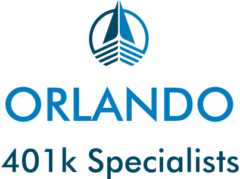401(k) plans are a popular way for employers to provide tax-favored retirement benefits for their employees. In a 401(k) plan, an employee can have all or a portion of his compensation contributed pre-tax or after-tax, if the plan has a Roth arrangement, to a trust. The employer can also make contributions to the trust on the employee’s behalf. Earnings accumulated in the trust aren’t taxed. Generally, the employee doesn’t pay tax on the pre-tax contributions and their earnings until distributed from the trust (distributions of after-tax contributions and earnings on them may also be tax free if they represent qualified distributions).
State or local governments or political subdivisions, agencies or instrumentalities of state or local governments, are not eligible to maintain 401(k) plans (except if adopted before May 6, 1986). However, they can provide similar tax-favored retirement benefits for their employees through a 457(b) plan Deferred Compensation plan. Tax-exempt employers may also maintain 457(b) plans but they have different characteristics.
Although similar to 401(k) plans, 457(b) plans for state or local governmental employers, have key characteristics and unique features:
- Potential inclusion of independent contractors in 457(b) plans
- No coverage or nondiscrimination testing
- Single contribution limit for elective deferrals and contributions
- Increased contribution limits for the three years before normal retirement age
- Distributions can be made for unforeseeable emergencies
- Other distributable events include the attainment of age 70 ½ and severance from employment
- Availability of a statutory period that extends to the start of the 1st plan year that begins more than 180 days after IRS notifies you to correct a failure to comply with applicable rules
- Employers may propose correction for failure to satisfy 457(b) rules under a closing agreement, outside of the Employee Plan Compliance Resolution System (EPCRS), using standards similar to EPCRS
